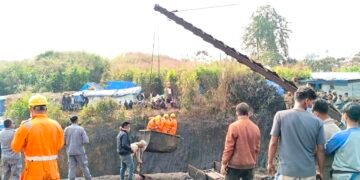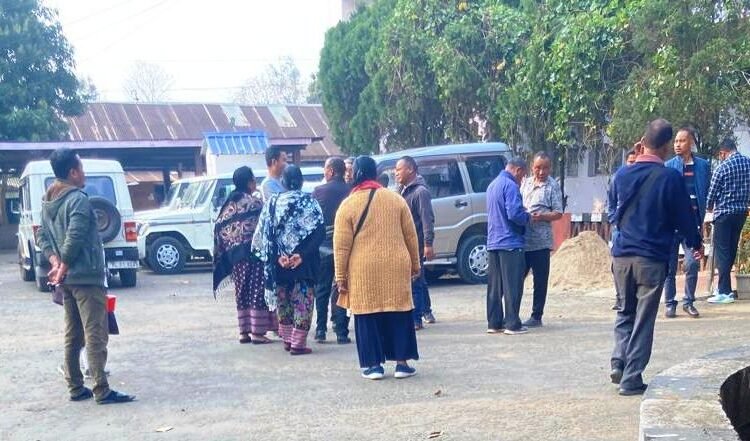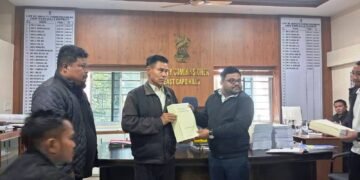Ongoing land acquisition for a highway widening project in East Garo Hills has led to increasing confusion and anxiety among landowners, as concerns over fair compensation and transparency continue to mount.
Initially, many villagers refused to sign the consent forms, citing dissatisfaction with the compensation offered. However, some have now visited the revenue office in Williamnagar to sign the documents amid rumours that the government may proceed with the acquisition without providing compensation if they do not comply.
Some residents have also alleged that officials are trying to convince them with verbal promises of compensation of several lakh rupees but nothing is provided in writing.
Social activist Cherian Momin stated by way of an example that the commercial property of one SN Sangma, who operates a grocery store as her sole means of livelihood, was shown an offer of around Rs 8 lakh at the revenue office but nothing in writing was ever given to her.
“This shop is a commercial asset that I inherited from my late father. As I am unemployed, it is my only source of income, supporting my family, including my younger siblings. Through various business activities conducted at this shop, I earn an annual income of approximately Rs 12-15 lakh. Losing this shop would severely affect my financial stability and my ability to provide for my family. However, I have been informed that the compensation being offered to me is approximately Rs 8 lakh, which I believe is an insufficient amount, considering the importance of this property to my livelihood and well-being,” she revealed through Momin.
On Monday a group of villagers attempted to meet the Deputy Commissioner to raise their grievances but he was in the office only briefly and left before they could present their concerns, Momin added. Frustrated by the lack of engagement from authorities, the villagers are now considering approaching the High Court for intervention and a fair compensation process.
“This is our land, our only means of livelihood. If the authorities do not listen to us, we will have no choice but to seek legal help,” Sangma said.
Momin, meanwhile, called the compensation process “suspicious”, with corruption possibly involved. “The landowners are not given any written document with the compensation amount and the administration has yet to publish a public notice regarding the compensation details,” he added.
Under the Meghalaya Right to Fair Compensation and Transparency in Land Acquisition, Rehabilitation, and Resettlement Act 2013 (Rules 2015), the prior consent of at least 80 per cent of affected families is required before acquisition can proceed. However, villagers allege that the process lacks transparency, with landowners being shown compensation figures only at the revenue office without any official documentation or referred to any gazette notification.




























